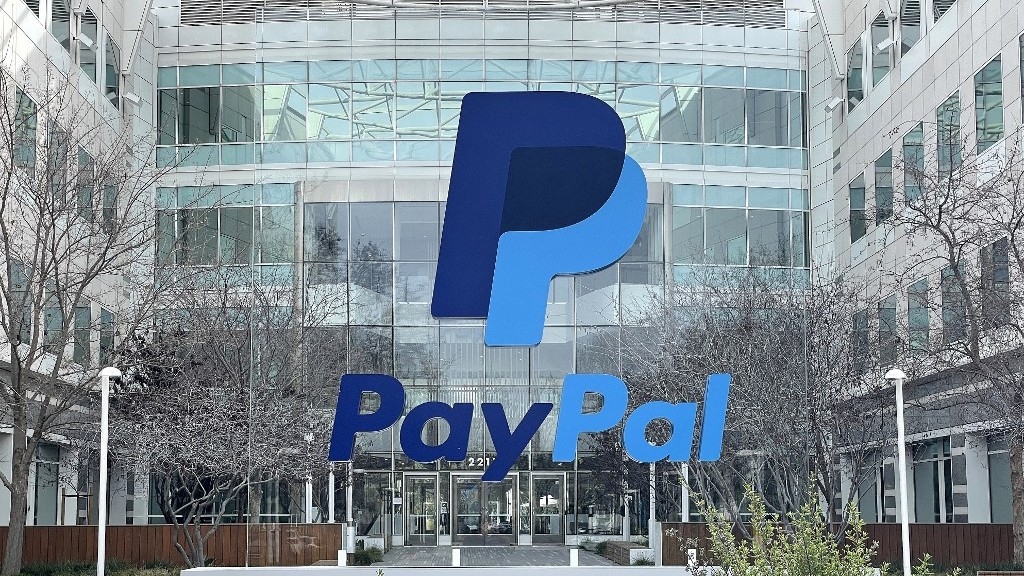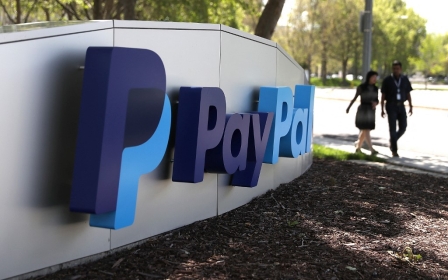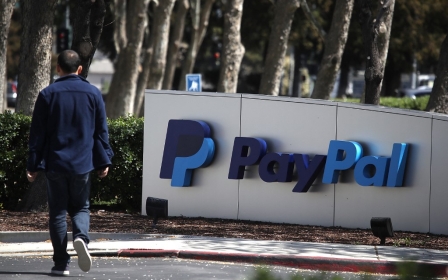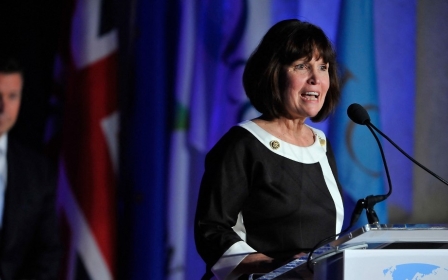US congress members urge PayPal to open services to Palestinians

Members of Congress are urging PayPal to open up its services to Palestinians in the West Bank and Gaza Strip.
According to the letter, which was sent to the online payment system's CEO, Dan Schulman, PayPal could be infringing upon the rights of Palestinians as it does not provide them with access to its services.
“We have significant concerns that, because PayPal does provide services to Israeli citizens in illegal settlements across the West Bank, but does not provide services to Palestinians living in the West Bank and Gaza, PayPal’s current operating status may be infringing upon the rights of Palestinians,” the letter said.
“Additionally, PayPal’s decision to exclude Palestinians from its services may only exacerbate economic hardship, and therefore political instability, in the West Bank and Gaza.”
The letter, authored by Congressman Mark Pocan, was written in collaboration with 7amleh, also known as The Arab Centre for the Advancement of Social Media, and signed by Congress members Ilhan Omar; Rashida Tlaib; Betty McCollum; Pramily Jayapal; Greg Casar; Earl Blumenauer; Jamaal Bowman; James McGovern; Sara Jacobs; and Cori Bush.
New MEE newsletter: Jerusalem Dispatch
Sign up to get the latest insights and analysis on Israel-Palestine, alongside Turkey Unpacked and other MEE newsletters
In a recent survey by 7amleh, it was found that 80 percent of Palestinian households across all socio-economic groups would use PayPal if possible. Currently, Mastercard, Visa, Swift, and Apple Pay are in the Palestinian market, so there are no “foreseeable barriers to entry for PayPal” to join, 7amleh said.
“This is… an escalation against the company that deprives Palestinians of their fundamental right to access PayPal's financial services, which contributes to worsening the economic situation of the Palestinians,” Mona Shtaya, the advocacy and communications manager at 7amleh, told Middle East Eye.
She added that the “economic de-platforming” is contributing to shrinking spaces for civil society organisations.
“It also illustrates that Palestinian digital rights are taken in an intersectional approach with other people around the world who believe in the human rights principles as a way to a world full of equality, justice, and dignity.”
The campaign itself began in 2016 and the petition currently has over 275,000 signatures.
Middle East Eye delivers independent and unrivalled coverage and analysis of the Middle East, North Africa and beyond. To learn more about republishing this content and the associated fees, please fill out this form. More about MEE can be found here.




